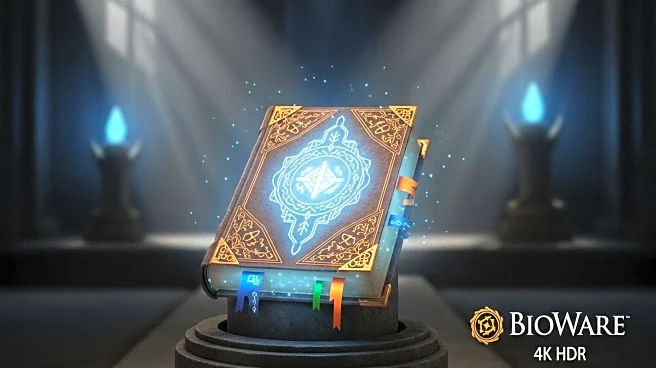What's Happening?
As BioWare faces challenges in maintaining its legacy in RPG development, several other studios are emerging as potential successors. Larian Studios, known for its success with Baldur's Gate 3, is working on new projects that promise to continue the tradition of character-driven RPGs. Obsidian Entertainment is developing The Outer Worlds 2, maintaining its focus on narrative-rich single-player experiences. Owlcat Games is venturing into cinematic sci-fi RPGs with The Expanse: Osiris Reborn, while Harebrained is creating an isometric body-horror RPG titled Graft. These studios are stepping up to fill the void left by BioWare's recent struggles.
Why It's Important?
The shift in RPG development leadership is crucial for the gaming industry, as BioWare has historically set high standards for storytelling and gameplay. The emergence of new leaders like Larian and Obsidian could redefine the genre, influencing future game design and player expectations. This transition may also impact market dynamics, with these studios potentially attracting BioWare's fan base and setting new benchmarks for RPG quality and innovation.
What's Next?
As these studios continue to develop their projects, the gaming community will be watching closely to see if they can deliver experiences that match or exceed BioWare's past successes. The reception of upcoming releases like The Outer Worlds 2 and The Expanse: Osiris Reborn will be pivotal in determining their impact on the RPG landscape. Additionally, these studios may explore new IPs and genres, further diversifying their offerings and expanding their influence.
Beyond the Headlines
The evolution of RPG development may also have broader implications for the gaming industry, including shifts in consumer preferences and technological advancements. As new studios rise to prominence, they may drive innovation in game mechanics, storytelling techniques, and player engagement strategies, shaping the future of interactive entertainment.










